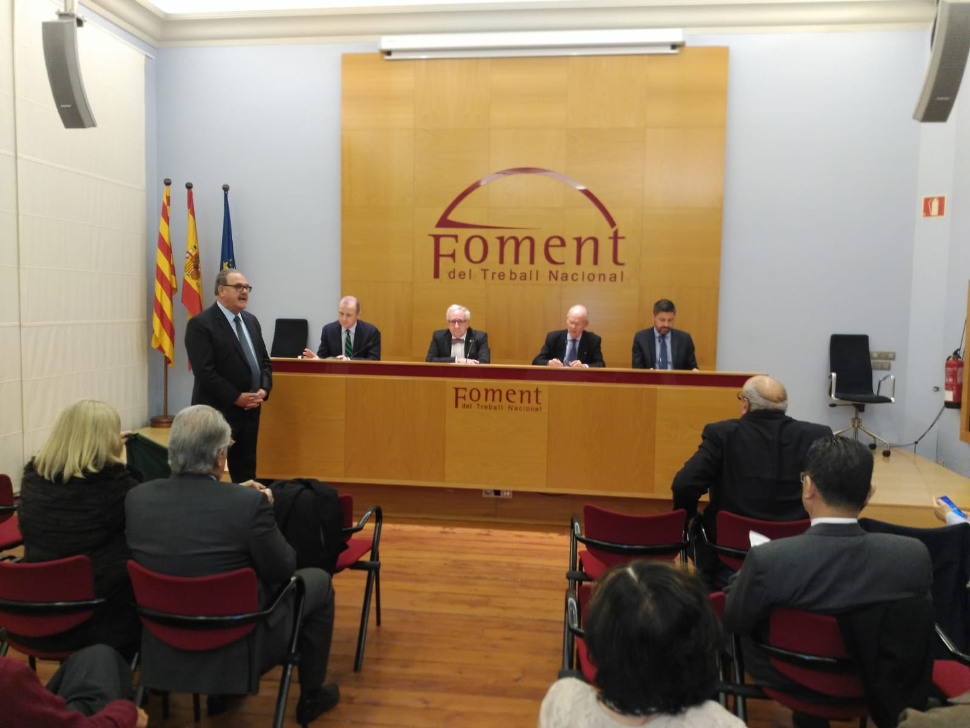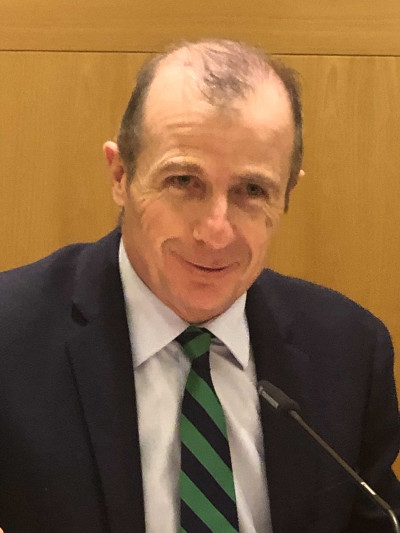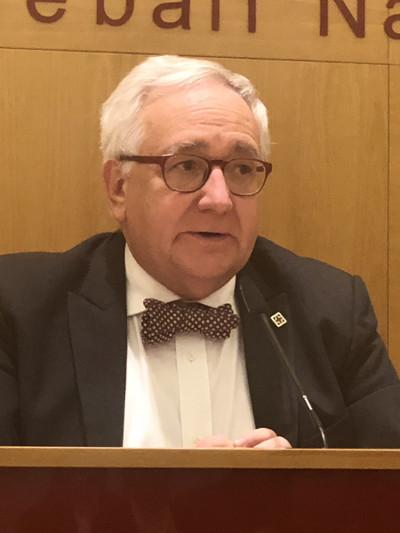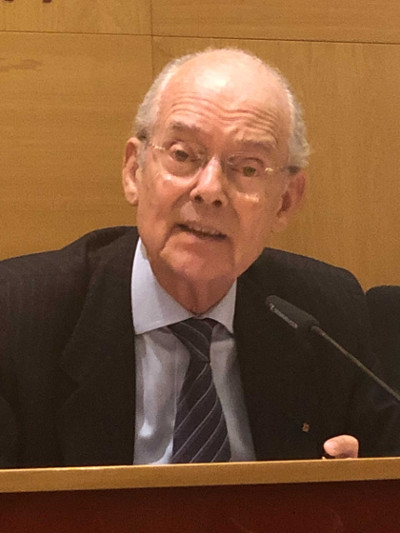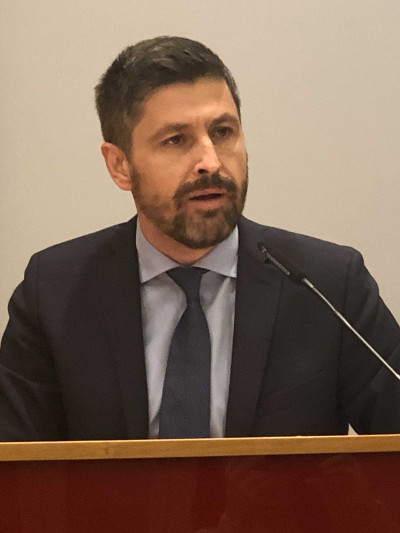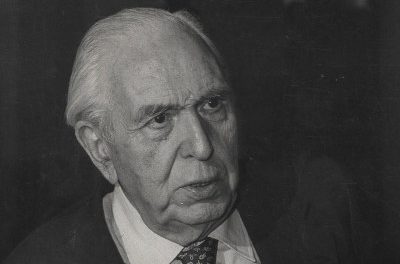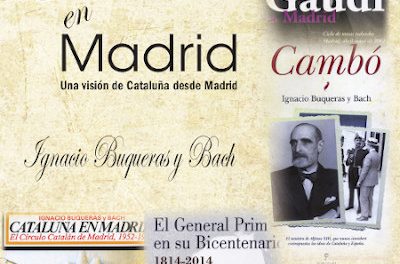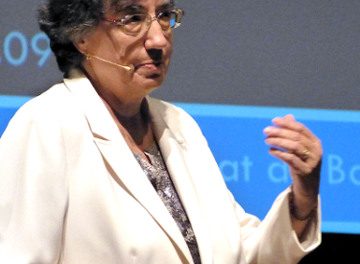Ignacio Buqueras reissues after 30 years the complete study he carried out on one of the key pieces of Catalanism
Ignacio Buqueras, full academician of the Royal Academy of Doctors of Spain, president of its Humanities Section and assiduous collaborator of the Royal European Academy of Doctors-Barcelona 1914 (RAED), presented last December 13 in the auditorium of Catalan labour Promotion of National Work, headquarters of the RAED, his book “Cambó”, first published in 1987 by Plaza & Janés and now reissued by Almuzara. The event was also attended by Carles Duarte, president of the National Council of Culture and the Arts of Catalonia; Rafael Guardans, President of the Spanish Institutional Foundation, and Josep Rosiñol, President of the Catalan Civil Society.
The author said that the current political situation in Spain and, in particular, Catalonia, encouraged him to accept the invitation to recover his work. “I considered that the personality of Francesc Cambó is as powerful today or more than three decades ago, while he can be an excellent reference for many citizens, especially young people. I would highlight Cambó’s exceptional preparation, oratorical skills, power of conviction, humanistic vocation, iron will and tenacity, balanced and moderate spirit… man of action and thought”, said Buqueras.
“Cambó was in his time a new and renovating man who could have contributed to a profound transformation in Spain, but who cut short a serious illness. He never left anyone indifferent. He had strong supporters, along with those who shouted “Die Cambó!”. He was a Catalanist, who never considered the ideas of Catalonia and Spain opposed”, said the author.
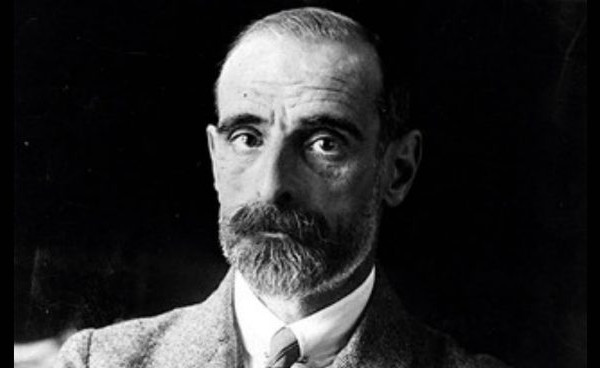 The work approaches the personal and political figure of Cambó at different stages of his life and his work, within its historical, geographic, socioeconomic and political context. There are also several chapters dedicated to testimonies, interviews and correspondence. Very important is the contribution of his daughter, Helena Cambó. In addition to those of figures such as Gregorio Marañón, Salvador de Madariaga, Manuel Fraga Iribarne, Jordi Pujol, Josep Tarradellas or Carlos Ferrer-Salat, among others.
The work approaches the personal and political figure of Cambó at different stages of his life and his work, within its historical, geographic, socioeconomic and political context. There are also several chapters dedicated to testimonies, interviews and correspondence. Very important is the contribution of his daughter, Helena Cambó. In addition to those of figures such as Gregorio Marañón, Salvador de Madariaga, Manuel Fraga Iribarne, Jordi Pujol, Josep Tarradellas or Carlos Ferrer-Salat, among others.
Other chapters are dedicated to his thoughts, experiences, activities, patronage and bibliography. The book is enriched with an excellent prologue that was written by the former president of the Spanish General Council of the Lawyers, senator and State councillor Antonio Pedrol Rius. In addition to an epilogue of the remembered journalist Emilio Romero, director of several newspapers.
- Rafael Guardans Cambó
- Carles Duarte
- Ignacio Buqueras
- Josep Rosiñol
